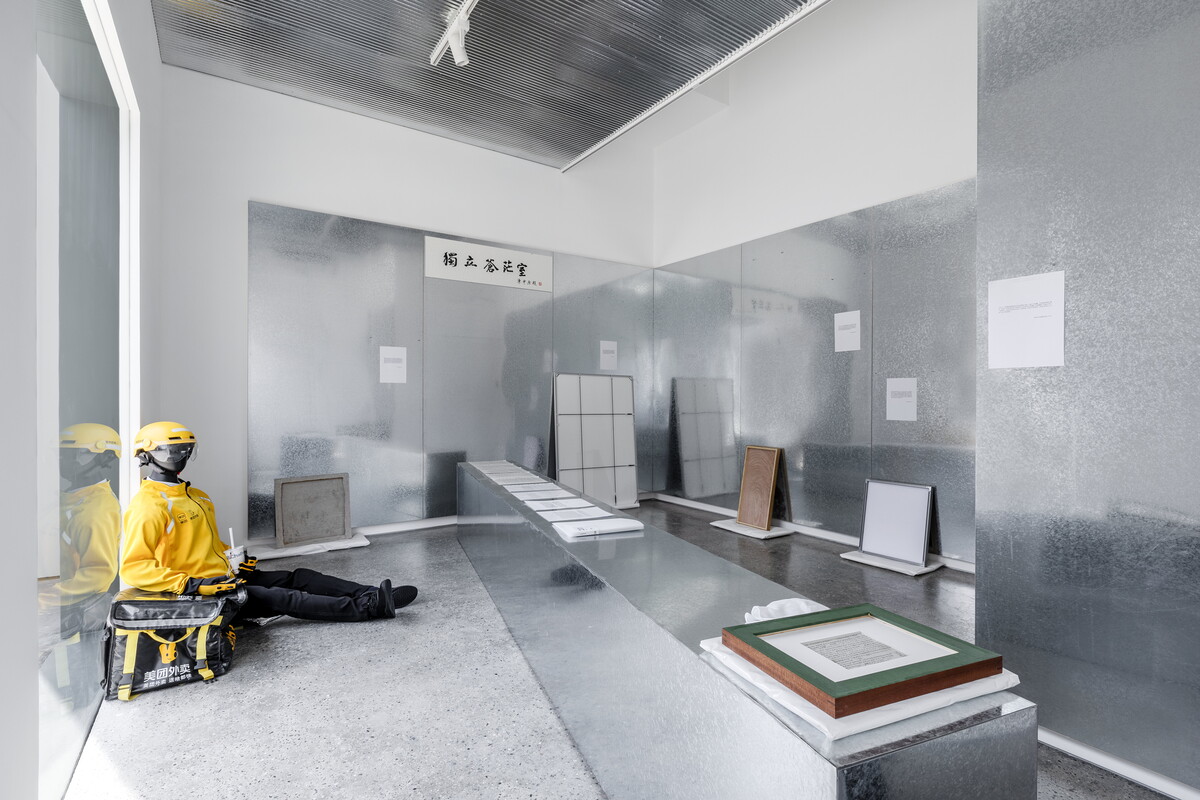In 2024, Magician Space opened The Antechamber, a gallery-independent project space dedicated to innovative projects, serving as a platform for unrestricted experimentation for artists with vision, intellectual depth, and creativity.
The first project Space of boundlessness is the latest work by Beijing-based conceptual artist Liu Ding. The word “boundlessness” comes from the poem “Song of Leyou Park” by the Tang Dynasty poet Du Fu (712–70). This poem describes what he saw at the banquet, expresses his sadness at his experiences, as well as his frustration with the political climate and society. The poem’s closing lines, “Finish of drinking, I have nowhere to go; I stand in boundless vastness and sing a poem to myself,” sum up a complex set of implications. The term “boundlessness” refers to both the state of twilight and a feeling of uncertainty about the future, a concern about politics in the country, and a deep sense of the history in which the vastness of the world is embedded.
The image of “loneliness in the space of boundlessness” has become an embodiment of the literary world’s concern with reality. Faced with the hustle and bustle of the world and the ups and downs of social change, one retreats into one’s own space, not to isolate oneself from the rest of the world, but to remain conscious of one’s position. It is about connecting the individual self with the fate of society, to find possible ways to voluntarily assume responsibility for reality. In this sense, “loneliness in the space of boundlessness” is a schematic demonstration of helplessness and expectation, a belief in the strength of the independent mind and culture, and an intellectual quality that dares to face daunting realities with individual agency.
For this project, Liu Ding has compiled a collection of works and documents by renowned writers and artists to Space of boundlessnessHe believes that if we consider aspects such as a person’s heart, emotions, disposition, inner nature, potential and ambition, we can gain more precise and flexible insights to understand historical figures and events in their specific context. Space of boundlessness serves as a vessel, carefully constructed from a pastiche of fragmented experiences and experienced emotions.
Professor Chen Pingyuan, a scholar of modern literary history, has written a calligraphic inscription for this project entitled “Being Alone in the Space of Boundlessness.” Since the early 1990s, Professor Chen has been at the forefront of a movement to revive the study of literary history and the history of science through his “retreat” to the “academic world.” He emphasizes the importance of establishing strict “academic criteria” and urges innovation and development in scientific “production.”
This time, Liu Ding interweaves his personal collection with his own artworks, presenting an installation of two chapters. This project is like an extension of his private study, temporarily housed in the anteroom of the Magician Space. In this room, he first covers the entire walls with eight silver iron plates, transforming the space into an austere and metallic enclosure. Then, in the second chapter, four of these plates are removed and repositioned so that they now stand diagonally between their still-attached counterparts. This reconfiguration partially obscures the remaining wall plates and, in one case, even blocks the viewer’s direct view of a work on display, creating a scene of fragmentation and unease.
The group of works presented in Chapter I consists of the inner thoughts of people who have lived through different circumstances and experiences in contemporary society. They are symbols of depression and “portraits” of people in despair. The second chapter contains four works, all of which deal with the unbearable agony and helplessness that wars have brought in the past and present, as well as the complex emotions that remain in people’s hearts after war. Together, the two parts draw a thought-provoking topography of the troubling historical moment we face today.




